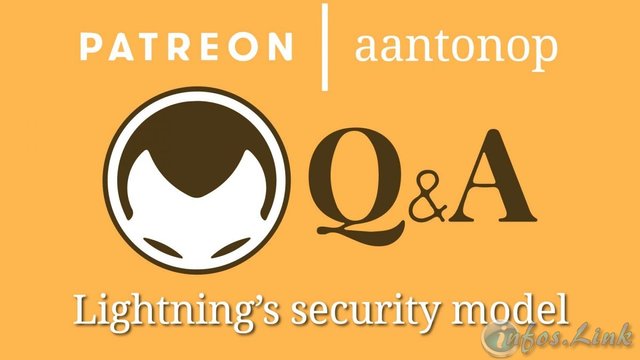
In this video, Andreas Antonopoulos sheds light on the safety of the Lightning Network. The LN - Lightning Network - is a payment system running on a P2P network - peer-to-peer -. LN has recently been deployed on the Bitcoin network to speed up bitcoin payments and reduce costs.
A little vocabulary
The LN is based on smart contracts - or self-executing contracts - that duplicate two features of Bitcoin: multisignatures and HTLCs - or hashed timelock contracts .
- HTLC : It's a way of transmitting a promise, which can only be unlocked by a secret - in this case a hashed image. The HTLC requires that the recipient of a payment acknowledge receipt of the transfer before a deadline, which is done by generating a cryptographic proof of payment, or by renouncing the possibility of claiming payment, by returning it to the payer.
- Nodes - or nodes : they are the base of a cryptocurrency . As many of you know, cryptographic currencies are based on decentralized registers . A node maintains the integrity of a copy of this registry , which contains all transactions made since the creation of the currency. The nodes are connected via a P2P protocol .
- DDOS - Denial of Service attack - : A denial of service attack is a computer attack to make a service unavailable , to prevent its legitimate users from using it. At present, the vast majority of these attacks are from multiple sources , so called distributed denial of service attack .
When we create a payment channel on the Lightning Network, is it secure like the blockchain ?
Absolutely, if you make a bitcoin transaction on the Lightning network, then it's a Bitcoin transaction . Basically, lightning network channels represent people who exchange signed Bitcoin transactions . Therefore, this exchange has the same security guarantees and the same authorization qualities as the Bitcoin blockchain .In fact, for Lightning to work, the blockchain of Bitcoin, underlying, is essential . Lightning routes smart contracts containing a pre-signed bitcoin transaction. It requires that they be valid on the underlying blockchain .
What happens if there is a problem with one of the parties during the transaction?
In any scenario on the LN, if one of the parties fails to complete the commitment on the channel or does not close it when asked: the other party may close the channel . Therefore, you do not have to trust other network participants.
In fact, the goal is to make transactions with people who are not supposed to behave in a particular way, they can stop responding to requests , they can do anything they want, whatever . You do not need to trust them . Because during the whole process, you have a signed Bitcoin transaction that is valid and allows you to recover your funds .
How will the Lightning Network handle distributed denial of service attacks?
LN nodes, like Bitcoin nodes, monitor the information they receive from adjacent nodes . If this information is invalid , the nodes will limit or prohibit the connection to nodes misbehaving .
This is an ongoing process, as attackers find new ways to attack the network . This forces the network to adapt and gradually; this makes the system evolve to become more resilient to denial of service attacks. Bitcoin itself is beset by denial of service attacks, and has gradually evolved to become strong enough and resistant to these attacks. However, this does not mean that they are impossible; it simply means that they are inefficient and very expensive .
You got a 18.18% upvote from @botcoin courtesy of @infoslink!
Downvoting a post can decrease pending rewards and make it less visible. Common reasons:
Submit